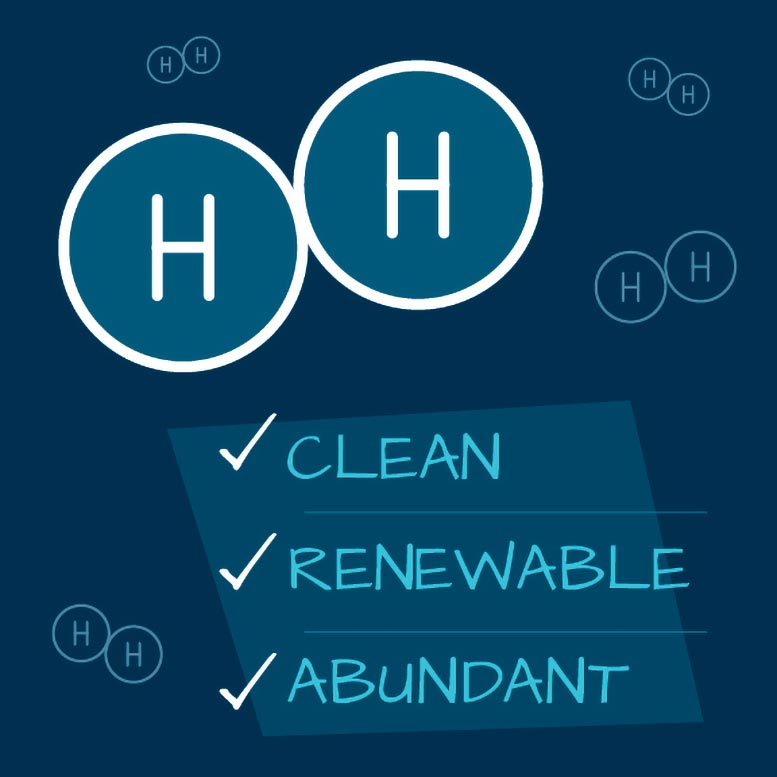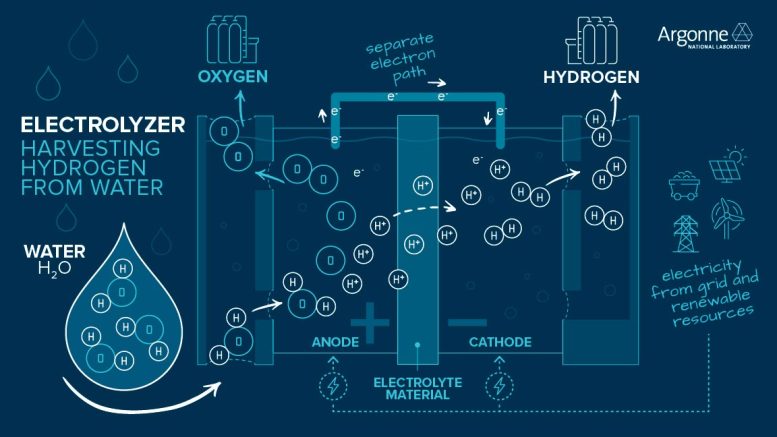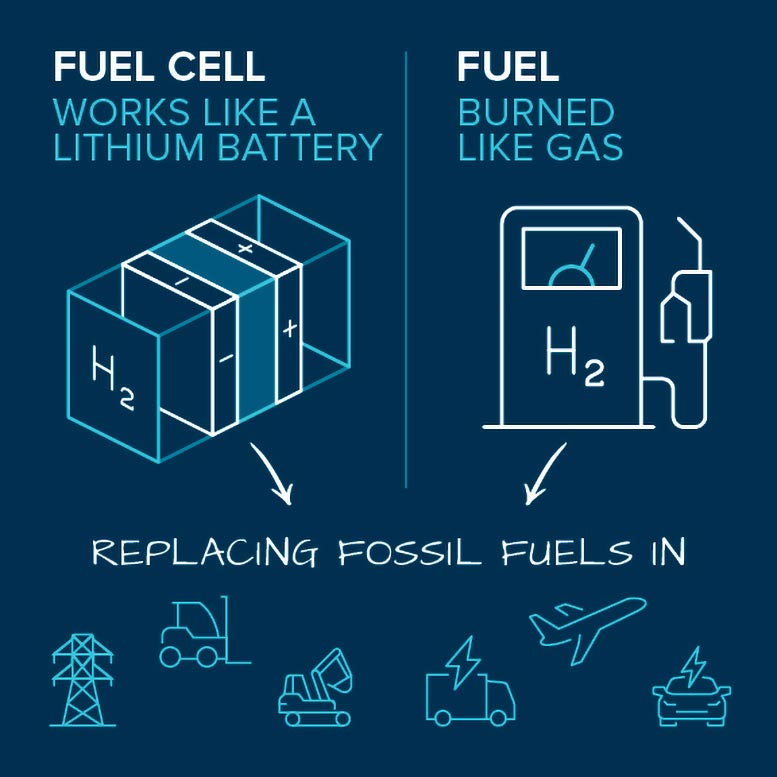
Science made simple: What is hydrogen energy?
Scientists are exploring hydrogen as a clean energy source to combat climate change, with a focus on producing it through water electrolysis and using it in fuel cells for transport, in line with the goal of net zero carbon emissions by 2050.
What is hydrogen energy?
As the effects of climate change become more apparent, our planet faces record heat waves, unprecedented storms, historic droughts and wildfires. Scientists have linked these events to greenhouse gases such as carbon dioxide in the atmosphere, most of which is produced by human activity.
What if, instead of emitting harmful greenhouse gases into the environment, our planes and cars could run on fuel produced from water, using electricity from the sun or wind? What if this renewable fuel could provide backup power to the power grid and could be purchased at gas stations across the country?
In this Science 101 video, scientists Debolina Dasgupta and Nancy Kariuki describe the science, technology, and applications of hydrogen energy. Hydrogen is the simplest chemical element, or type of cornHydrogen is found abundantly in our planet's water. It is naturally replenished through the water cycle, and when used as fuel it emits no harmful emissions. For these reasons, hydrogen can play a key role in promoting a cleaner environment and reducing greenhouse gas emissions in sectors ranging from transport to the grid. Scientists at the U.S. Department of Energy's Argonne National Laboratory leverage world-class facilities and expertise to reduce the cost of hydrogen production and develop affordable fuel cells for hydrogen-powered vehicles. They are also evaluating ways to produce, transport, store and use hydrogen to reduce greenhouse gas emissions.
Scientists are working to turn this vision into a reality using the energy found in hydrogen, which promises to play a key role in promoting a cleaner environment and achieving the U.S. goal of achieving net-zero carbon emissions by 2050 — in other words, decarbonizing the world. Atmosphere. atmosphere at the same rate of emission.
Hydrogen is the simplest chemical element or type of atom. It is made up of one proton and one electron. It is also the most abundant element, making up about 75% of the known matter in the universe. Large amounts of hydrogen are found in water and living organisms.

Hydrogen is abundant in our planet's water and is naturally replenished through the water cycle. When used as fuel, it releases no carbon emissions, making it a promising source of clean energy. Credit: Argonne National Laboratory
The hydrogen molecule, made up of two hydrogen atoms, can be used to produce carbon-free energy. Hydrogen molecules carry a lot of energy; A pound of hydrogen contains nearly three times the energy of a pound of gasoline or diesel.
However, hydrogen molecules are not abundant on Earth and make up less than 0.0001% of our atmosphere. For this reason, hydrogen must be produced from other substances that contain it. The most common way to produce hydrogen without using fossil fuels is to split water (H2O) to hydrogen (H2) and oxygen (O2) using electricity. This process, called water electrolysis, is a promising option for producing carbon-free hydrogen, as the electricity can come from nuclear or renewable energy, such as wind and solar. Scientists and engineers are working to improve and reduce the cost of hydrogen produced by water electrolysis.

During electrolysis, water splits at the anode to form oxygen, hydrogen ions, and electrons. The electrolyte allows hydrogen ions to pass through, but forces the electrons to flow separately to the cathode, where the two combine to form hydrogen gas for use as fuel. Credit: Argonne National Laboratory
They are also developing methods to convert solar energy and water directly into hydrogen by harnessing and mimicking biological processes such as Photosynthesis.
There are several ways to use hydrogen as an energy source once it is produced. The most important of these are fuel cells, which convert chemical energy stored in hydrogen and oxygen into electricity. Unlike gasoline engines, there are no harmful emissions such as carbon dioxide. Unlike batteries, fuel cell systems do not require long periods of downtime to recharge. They are powered like gasoline engines, but with hydrogen.

Hydrogen can be used in fuel cells or burned as fuel in engines. Scientists and engineers are working to improve these technologies, which could replace the use of fossil fuels in transportation and the grid. Credit: Argonne National Laboratory
A type of hydrogen fuel cell under development for cars, trucks, forklifts, buses, ships and trains splits hydrogen molecules into electrons and protons. Electrons are forced to flow through an electrical circuit, creating a store of usable electricity. During this time, protons are able to pass through the membrane, eventually combining with electrons and reacting with oxygen molecules in the air to produce water, which is the only emission.
Scientists at the U.S. Department of Energy's Argonne National Laboratory leverage world-class facilities and expertise to advance hydrogen science and technology. Our researchers are working to reduce the cost of hydrogen production by developing affordable fuel cells for hydrogen-powered cars. They are also evaluating ways to produce, transport, use and store hydrogen to reduce greenhouse gas emissions.

“Organizer. Social media geek. General communicator. Bacon scholar. Proud pop culture trailblazer.”
